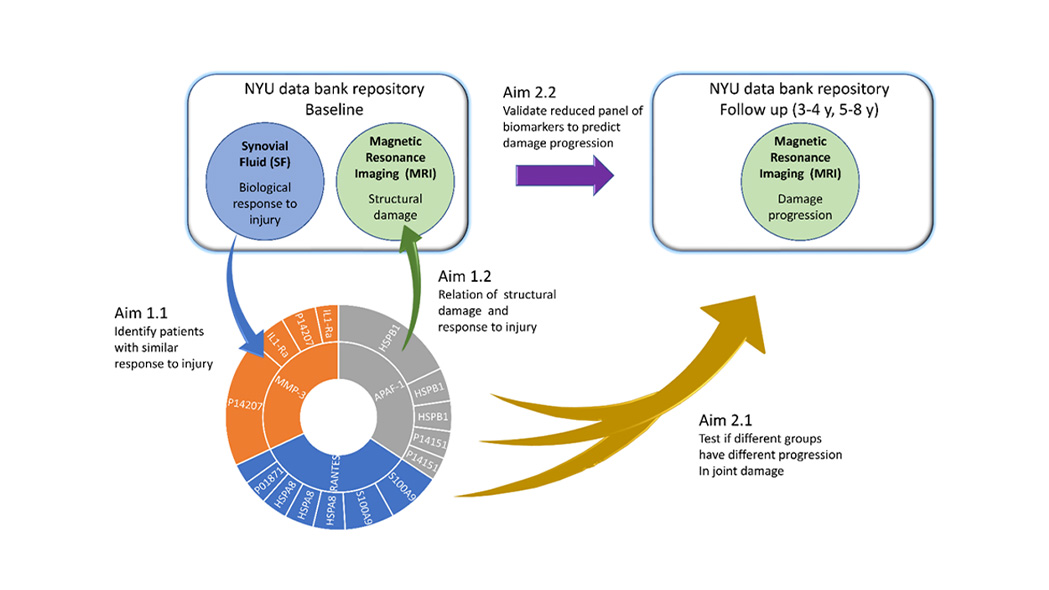Genomic and Imaging Markers to Understand and Predict Progression of Joint Damage After Injury

Overview
In this study we use genomic analysis and diffusion tensor imaging to investigate early biological responses to anterior cruciate ligament (ACL) injury in young adults in order to predict the risk of developing post-traumatic osteoarthritis.
Post-traumatic osteoarthritis (PTOA) following ACL rupture severely impacts the lives of many, and for those with advanced PTOA, joint replacement is often the only treatment. The number of total knee replacements in patients aged 40-64 has tripled within a decade, emphasizing the urgent need for effective PTOA prevention and therapies that delay or arrest the deterioration that eventually makes joint replacement necessary.
Our goal in this research is to identify a panel of predictive biomarkers that will provide valuable endpoints for evaluating the efficacy of novel interventions aimed at mitigating PTOA progression and to facilitate the development of therapies for PTOA prevention.
We analyze synovial fluid collected from patients during the acute and sub-acute phases of ACL injury, and use genomic analysis of soluble biomarkers and extracellular vesicle cargo to obtain a comprehensive view of the joint’s biological response to injury. Meanwhile, we use diffusion tensor imaging, an MRI technique that can detect early cartilage degeneration, to assess articular tissue over time. We then correlate the analyses of the synovial fluid with the imaging assessments of the cartilage, searching for soluble biomarkers and extracellular vesicle cargo that predict whether a patient goes on to develop PTOA.
Keywords
- Post-Traumatic Osteoarthritis (PTOA)
- Predictive Biomarkers
- Diffusion Tensor Imaging (DTI)
Project Team
External Collaborators
- Thorsten Kirsch, PhD (Project Lead) , NYU Langone Health
- Richard Kijowski, MD , Hospital for Special Surgery
- Aristotelis Tsirigos, PhD, NYU Langone Health
- Eric J. Strauss, MD, NYU Langone Health
Publications
- Raya JG, Duarte A, Wang N, Mazzoli V, Jaramillo D, Blamire AM, Dietrich O, Applications of Diffusion-Weighted MRI to the Musculoskeletal System; J. Magn. Reson. Imaging, 59(2), 2024, pp. 376–396.
Acknowledgements
We acknowledge support from the following NIH grant: NIH NIAMS R01AR082225. Conjoint project with project funded by NIH R01AR079182 (PI: G. Madelin), “Multinuclear MRI to assess joint homeostasis after knee injury”.








